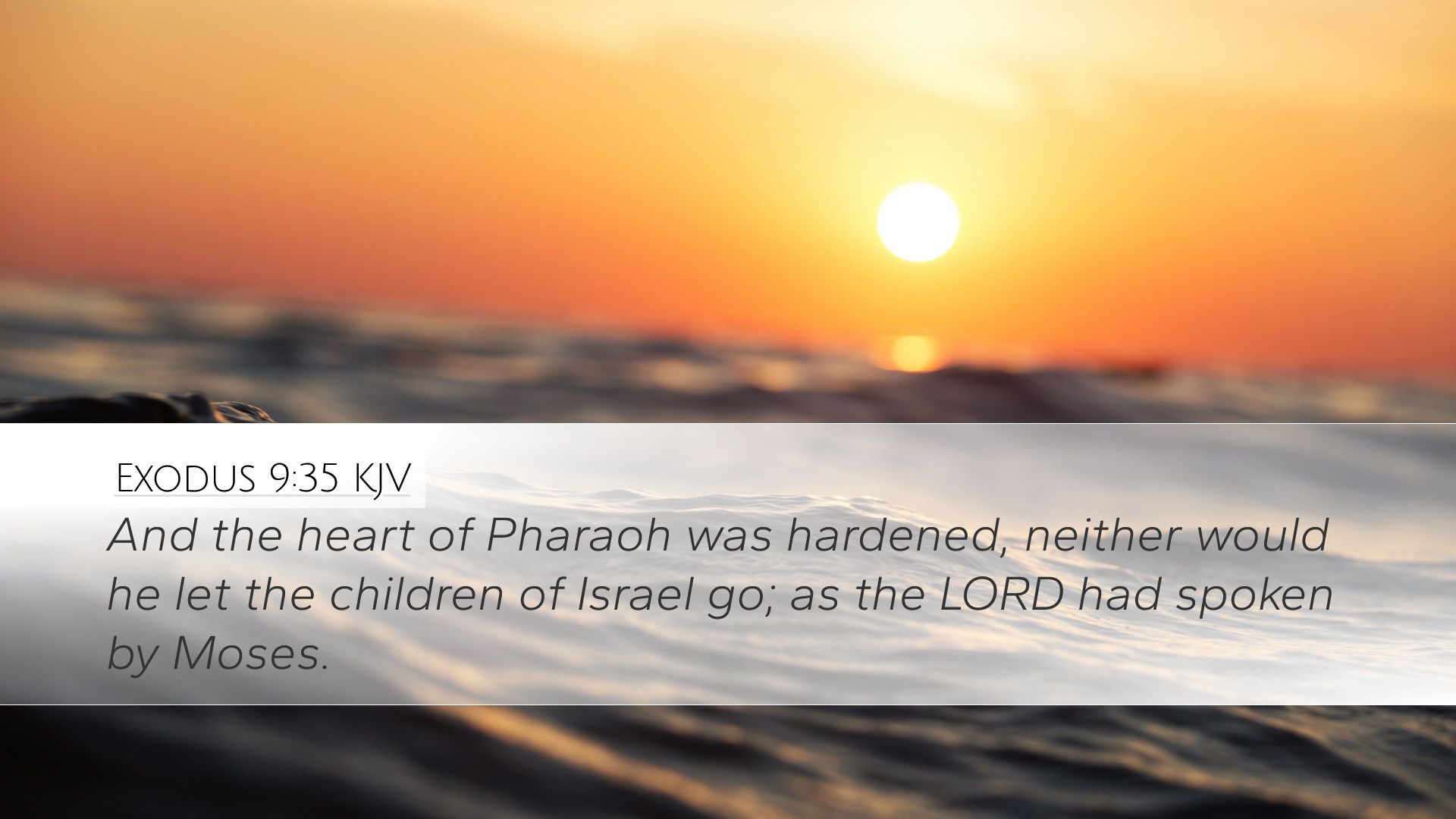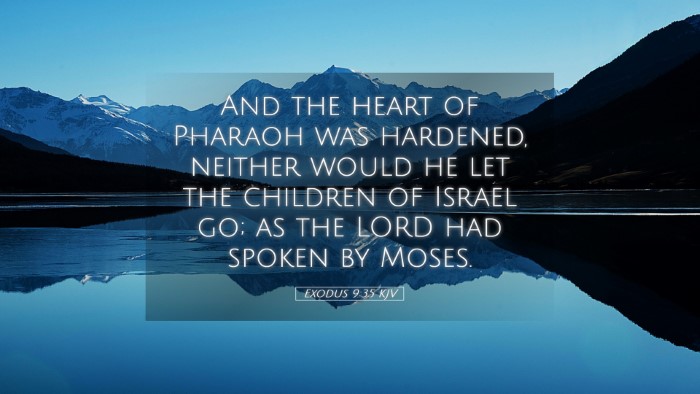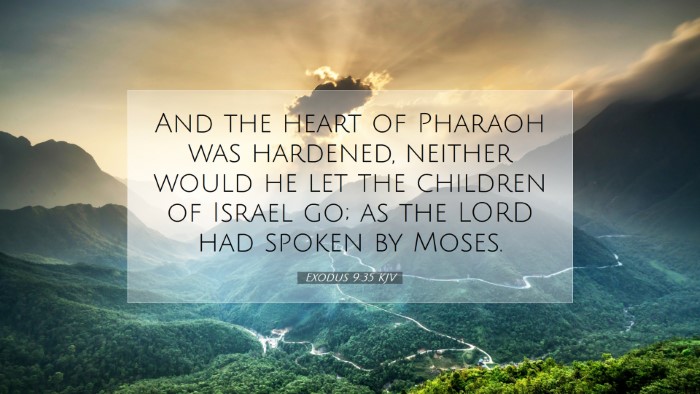Exodus 9:35 - Commentary Overview
Exodus 9:35 states, “And the heart of Pharaoh was hardened, neither would he let the children of Israel go, as the LORD had spoken by Moses.” This verse encapsulates a pivotal moment in the narrative of the Exodus, emphasizing the culmination of the plagues and the moral and spiritual resistance embodied in Pharaoh. The commentaries of Matthew Henry, Albert Barnes, and Adam Clarke provide a multifaceted exploration of the implications and theological significance of this verse.
Understanding Pharaoh's Hardening
The hardening of Pharaoh's heart is a theme that permeates the narrative of the Exodus. Each instance of this hardening serves to highlight not only Pharaoh's obstinacy but also God's sovereignty and purpose in the liberation of the Israelites.
-
Matthew Henry notes that God’s judicial hardening of Pharaoh serves as a warning to those who resist His will. Henry asserts that the hardness of Pharaoh’s heart was a demonstration of God’s power, allowing His wonders to be known to the world. He emphasizes that such hardening is often a means through which God displays His glory.
-
Albert Barnes observes the repeated cycles of warning, plagues, and hardening, demonstrating God's patience. He emphasizes that Pharaoh's obstinacy arose from his pride and unwillingness to submit to the authority of God. Barnes comments on the results of Pharaoh's hardening—each refusal to obey God leads to greater suffering, not only for him but for all of Egypt.
-
Adam Clarke offers a theological reflection on the nature of God’s sovereignty and human responsibility. Clarke argues that while God can harden hearts for His divine purposes, human choice plays a critical role. He warns that continued rebellion against God’s will can lead to a state where one becomes incapable of repentance.
Theological Implications
The narrative surrounding Exodus 9:35 raises significant theological questions about divine sovereignty, human agency, and the nature of sin. The commentary reflects how biblical scholars have grappled with these themes.
-
Divine Sovereignty: The instances of hardening illustrate God's supreme authority. Henry clarifies that God's control over Pharaoh does not absolve Pharaoh of responsibility, showcasing that God can use even the most obstinate hearts to fulfill His grand plan.
-
Human Agency: Barnes emphasizes that while God has the power to harden hearts, humans must choose to accept or reject His will. This theme resonates with contemporary discussions about free will and God’s providential governance in the lives of individuals.
-
Sin and Judgment: Clarke reiterates the human propensity to sin and warns against continued rebellion. The hardening serves as a form of judgment, a direct consequence of refusing to heed God’s commands. Clarke’s perspective urges a reflective approach to one's own spiritual state, cautioning against obstinacy.
Pastoral Applications
For pastors and church leaders, the lessons from Exodus 9:35 hold powerful applications for both personal faith and congregational teaching.
-
Awareness of Hardening: Pastors should be vigilant against the subtle ways in which hearts can become hardened—through sin, complacency, or resistance to God’s Word. Regular reflection and confession help stave off spiritual hardness.
-
Encouragement to Repentance: Churches can use this Scripture as a call to repentance. Highlighting the consequences of hardening one’s heart serves as an invitation to seek God genuinely.
-
Emphasizing God’s Sovereignty: Sermons should reinforce the understanding of God’s sovereignty in redemption, demonstrating that while He orchestrates events for His glory, human response is crucial in the journey of faith.
Conclusion
Exodus 9:35 serves as a vivid reminder of the complexities of God's interaction with humanity. Through the lens of public domain commentaries, we observe how the hardening of Pharaoh’s heart conveys significant theological truths about the nature of God, human choice, and the dire consequences of resisting divine authority. This exploration not only enriches our understanding of the text but also challenges believers to examine their own hearts in relation to God's will.


